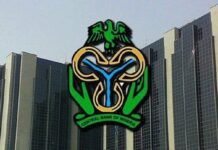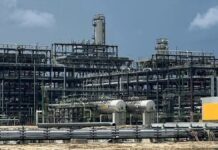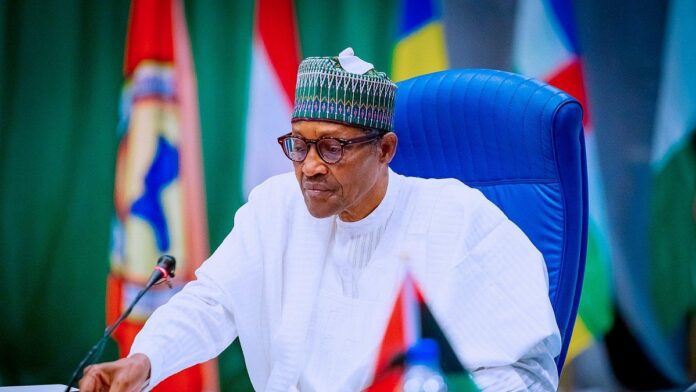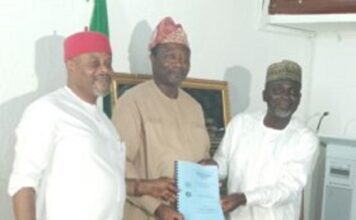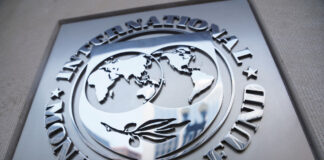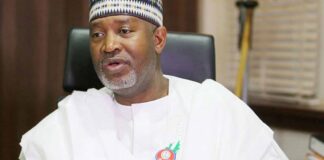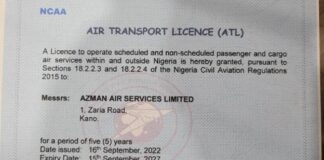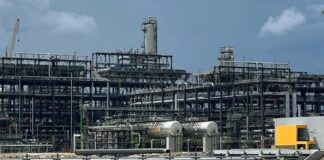Fitch Downgrades Nigeria as Interest on Debts Exceeds Govt. Revenue
Fitch Ratings has downgraded Nigeria’s Long-Term Foreign-Currency Issuer Default Rating (IDR) to ‘B-‘ from ‘B’ with a stable outlook amidst macroeconomic uncertainties, noting that the interest payments on debt stock exceed government revenue in the first half of 2022.
The rating agency said the downgrade to ‘B-‘ reflects continued deterioration in Nigeria’s government debt servicing costs and external liquidity despite high oil prices in 2022.
According to the rating note, low oil production and the expensive subsidy on petrol have consumed most of the fiscal benefit of high oil prices in 2022 and will continue to stress already low government revenue levels.
If implemented, subsidy reduction in 2023 would benefit public finances, but constrained oil production and structurally low domestic non-oil revenue mobilisation will limit potential gains, Fitch said noting that Nigeria faces with high cost of fuel subsidy.
In that regard, Fitch expects that the implicit subsidy on petrol will cost the government approximately N5 trillion, which is 2.4% of GDP, in foregone revenue from the Nigerian National Petroleum Corporation (NNPC) in 2022.
This is expected to contribute to a widening of the general government (GG) fiscal deficit to 6.1% of GDP, according to the rating note.
Fitch notes the foregone revenue stems from the spread between the regulated pump price of petrol, which has averaged N190 per litre, and the import cost, which has averaged above N300 per litre.
It said the Petroleum Industry Act 2021 contains language mandating a move to a market price for refined fuel products but plans to phase out the subsidy in 2022 were pushed back owing to higher global oil prices.
“In 2023, our base case scenario sees a gradual narrowing of the spread between the pump price and true market price of petrol, which is in line with the government’s proposed 2023 budget. However, we expect a longer timeframe for completely phasing out the subsidy, and therefore a higher level of foregone revenue”.
It noted that the February 2023 election will bring a new administration, which will likely introduce a supplemental budget. Although the subsidy reform has broad-based political support, Fitch considers that there will likely be public pressure to continue the fuel subsidy.
Lower subsidy costs and a marginal improvement in oil production will narrow the general government fiscal deficit, but Fitch hints about an expectation that this will remain above 5% of GDP in 2023.
Fitch forecasts Nigeria’s government general debt to increase to 34% of GDP by end-2022. It stated that this includes the Federal Government of Nigeria’s (FGN) overdraft with the Central Bank of Nigeria (CBN).
“Nigeria’s debt stock is low compared with the forecast 2022 ‘B’ median of 57.6% of GDP. However, its debt servicing metrics are among the highest for Fitch-rated sovereigns.
“We forecast government debt/revenue to increase to 580% in 2022 and interest/revenue to reach 47.7%, compared with the current ‘B’ medians of 282% and 10.8%, respectively. Both ratios will remain at broadly the same levels in 2023 before falling slightly in 2024”, it said.
At the central government level, Fitch said Nigeria’s debt metrics are made worse because the FGN holds a higher percentage of general government debt relative to its share of the revenue.
In the first half of the fiscal year 2022, interest payments reached 108% of FGN revenues amidst stagnant oil production.
According to Fitch’s note, Nigeria’s oil production will continue to be weighed down by the combination of oil theft, pipeline vandalism, and ageing infrastructure. It said this will limit both GDP growth and government revenue performance.
Production levels have been on a downward trend for several years and, after averaging 1.6 million barrels per day (mbpd) in 2021, fell to 1.2 mbpd in September 2022.
“We forecast 2022 crude oil production, including condensate, to average 1.3 mbpd and increase slightly to 1.4 mbpd in 2023”, Fitch said.
The global rating firm believes that the February 2023 general election will increase security risks in the oil-producing regions, but that the coming back online of the Forcardos export terminal and the Trans-Niger pipeline could help to offset continued losses from theft and vandalism. READ:Union Bank to See Rapid Growth after Merger – Fitch
It said higher oil prices have brought an improvement in oil export receipts; although some of this has been offset by higher fuel imports. Thus, forecast that the current account will move into a small surplus in 2022, from a deficit of 0.4% in 2021.
Despite the improvement in the current account, Fitch forecasts reserves to end 2022 at $36.3 billion, down from $40.2 billion in 2021, and to continue falling in 2023-2024.
It said falling reserves levels have contributed to tight foreign-currency liquidity, as evidenced by the rapid depreciation in the parallel market rate, which was N855/$ on 8 November as compared with the official rate of N446/$.
“The inability to reliably source US dollars on the official FX market has in turn contributed to lower portfolio inflows, which will continue to put further pressure on foreign-currency liquidity”, Fitch stated.
According to the rating note, the ‘B-‘ Long-Term Foreign-Currency IDR also reflects Nigeria’s manageable near-term external debt service.
Fitch estimates that the government faces external debt amortisations of $2.4 billion in 2023 and $2.7 billion in 2024, which will be met through a combination of reserves drawdown and new external borrowing, most likely syndicated loans.
“We forecast total external debt service to reach 11.8% of current external receipts in 2022, which is lower than the ‘B’ median forecast of 18.6%”.
The Ministry of Finance has clarified that a statement made by the Minister in October did not signal Nigeria’s intention to seek a debt restructuring. While the statement reflects the increasing pressure on debt affordability, Fitch does not consider a debt restructuring or forced debt exchange likely in the near term.
On the non-oil sectors drive, Fitch said growth in the service sectors will continue to support GDP growth, which its forecasts at 3.0% in 2022 and 3.1% in 2023. In 2021, Nigeria returned to positive real GDP per capita growth after five years of negative per capita growth.
Despite higher interest rates and tight foreign-currency liquidity, the rating note stated that Nigerian banks have increased credit provision to the private sector, by 19.4% year-on-year in September 2022, compared with 14.1% in September 2021.
It said banks’ asset quality has also improved in 2022, with non-performing loans falling to 4.8% in August after averaging 6% in 2021 amidst high inflation rate.
Nigeria’s already high structural inflation has been aggravated by global commodity price spikes and supply constraints. Nigeria’s inflation reached a 17-year high point of 20.8% in October 2022.
#Fitch Downgrades Nigeria as Interest on Debts Exceeds Govt. Revenue#








